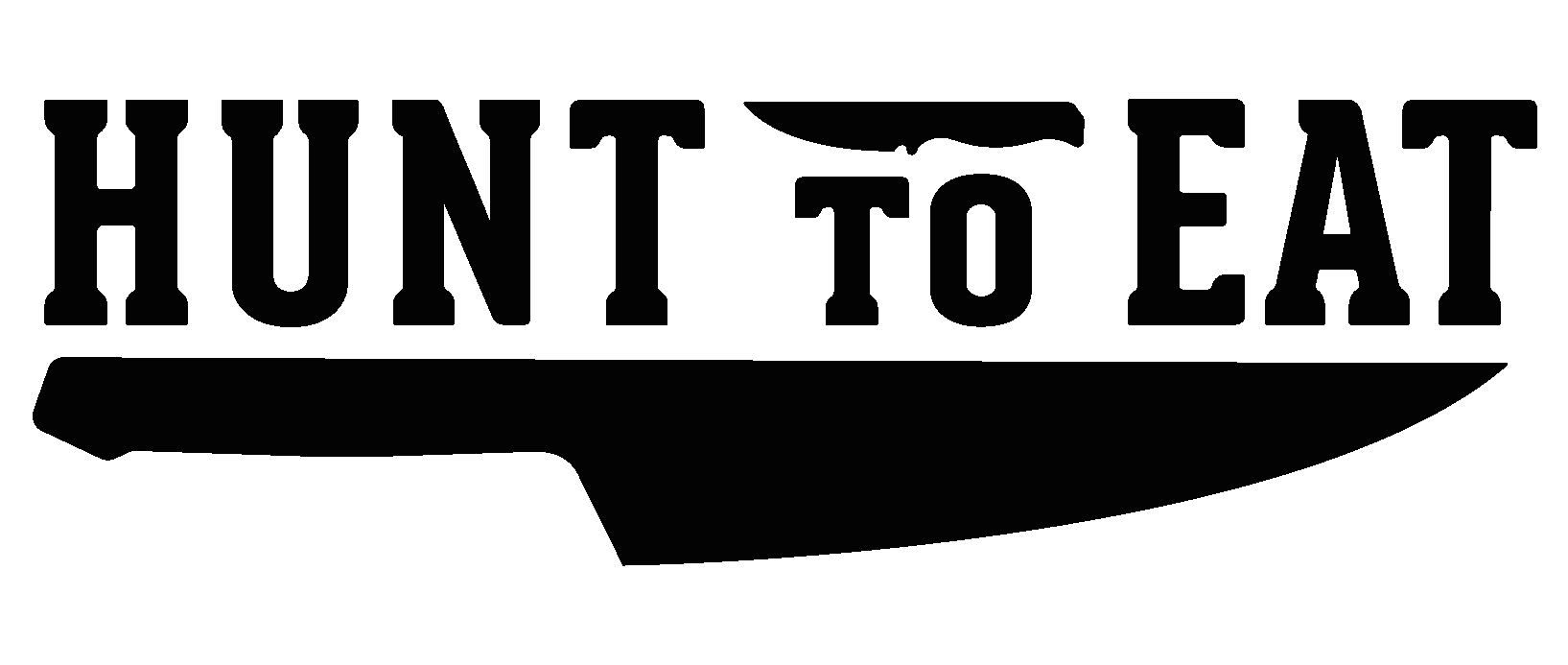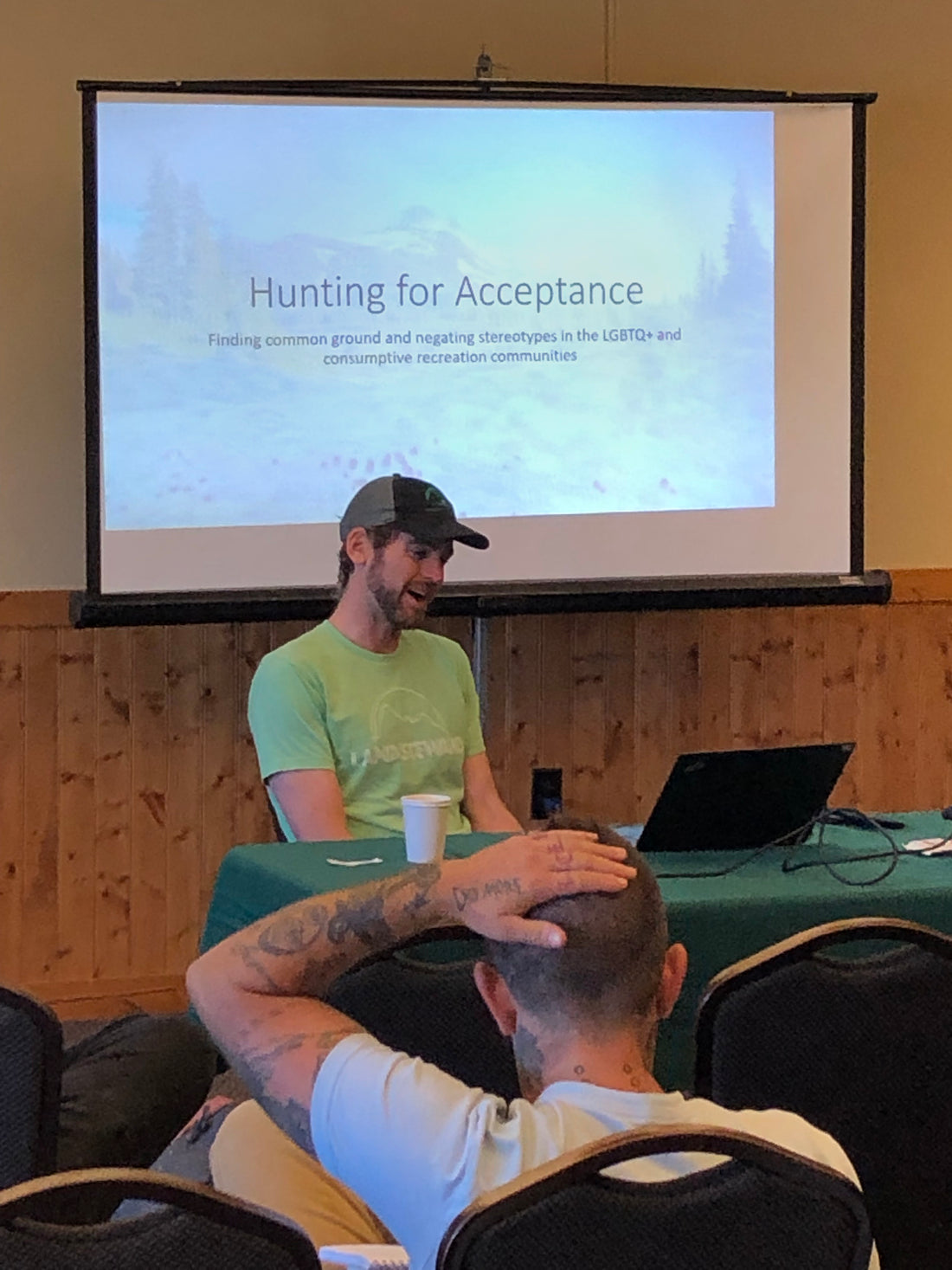by Justin Bubenik
I was proud to attend the LGBTQ Outdoor Summit, Sept. 26-29 in Estes Park, CO on Ute, Arapaho and Cheyenne Ancestral Land. By my side was Hunt to Eat CEO Mahting Putelis. The goals of the summit were to (1) Provide an affirming space to represent the LGBTQ Community's unique barriers, needs and wants as they pertain to getting outside, and (2) Engage in more nuanced dialogue that recognizes the vast diversity of experiences and identities within the LGBTQ community
Attendees included outdoor industry professionals and representatives, conservation-focused NGOs, outdoor recreation companies, local, state and federal government agencies. The 3-day Summit consisted of workshops, speaking engagements, technical skill-building and networking with the outdoor and LGBTQ+ community.
The workshop Mahting and I put on was titled "Hunting for Acceptance" (subtitle: finding common ground and negating stereotypes in the LGBTQ+ and consumptive recreation communities). The focus was on active and open discussion of the stereotypes plaguing the LGBTQ+ and the hunting/fishing communities and how those stereotypes impacted our lived experiences, the hurtles to integration and acceptance of the LGBTQ+ and hunting/angling communities, and ways forward or next steps.
Participants agreed that the role of "venison diplomacy" and the field-to-table movement would be ideal ways to introduce the community to consumptive recreation, with a focus on the ethics of hunting, including fair chase and a focus on the pursuit (rather than the kill), and the benefits to hunting can play for the ecosystem (less focus on factory farming, population control, elimination of invasives) and your own body (farm-raised vs. wild meats and fish). Additionally, there was considerable agreement that hunters need to make an active effort to curb the negative stereotypes a few have been perpetuating, including social media outreach, television series and shows and the more vocal bloggers concentrating of glamorizing the kill or a dead animal rather than the purpose, effort, emotions and sustenance provided by the successful hunt. Finally, we discussed how the LGBTQ+ community can influence the hunting community and reduce the homophobia that is prevailant in male-dominated activities, with overwhelming opinion being that more visible non-confrontational representation of LGBTQ+ individuals and allies would go a long way, as the perception is that few of the rural white male hunting majority have had meaningful personal interactions with the LGBTQ+ community beyond those interactions that would only enforce negative stereotypes.
While the formal sessions and workshops were valuable and gave attendees an opportunity to share their experiences, tragedies, and triumphs, it was the one-on-one or informal small group discussions during downtime that I found the most rewarding and left me feeling emboldened, inspired and like we're pushing for something worthwhile. I was consistently approached by attendees from all communities, including non-hunters, former hunters, vegans, active hunters and anglers, looking for more information on getting into the outdoors, insight into the benefits of pursuing your own food, and lending support for the mission of getting more diversity in the outdoors.
Without getting too cheesy, the Summit gave me an opportunity to dig into the underlying causes behind my own hesitation to being a part of the LGBTQ+ community, aside from just identifying as a "G", including a lack of visible individuals who looked or acted like me within the community, a fear of being labeled a "fraud" for concealing less than masculine personality traits, invalidation of my own struggles (downplaying due to white male privilege), and the early bias/stereotyping I've been exposed to throughout my life and which continue to persist.
Though there were many takeaways from the weekend, there was a consistent pattern that spoke to the value and need for role models or liaisons in both communities to serve as catalysts for change. I don’t think there is anything special about me and I know the barriers I’ve faced are nil compared to others in the queer community, but I’ve been gifted with a support system and allies that have given me the strength to stand up and represent - and, though scary, I can’t take it for granted.
I look forward to the day when “Coming Out” is no longer necessary and everyone can appreciate one another regardless of sexuality, gender or other society-driven identifier. Until then, I’ll proudly wear the label I’ve got in hopes that it will empower someone to live their truth and escape the fear and suffering that comes with living in the closet.

